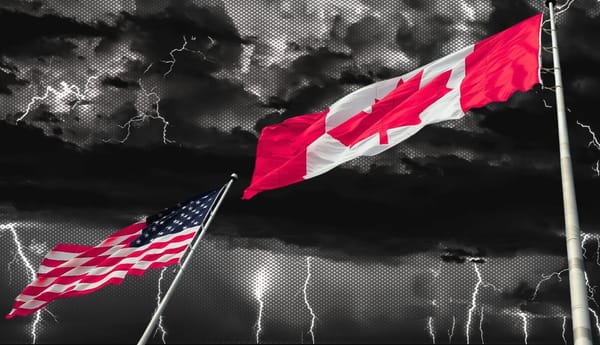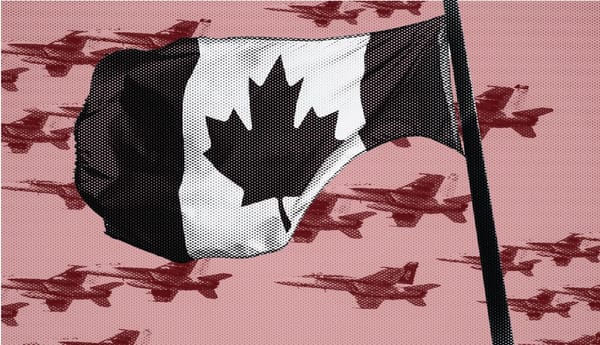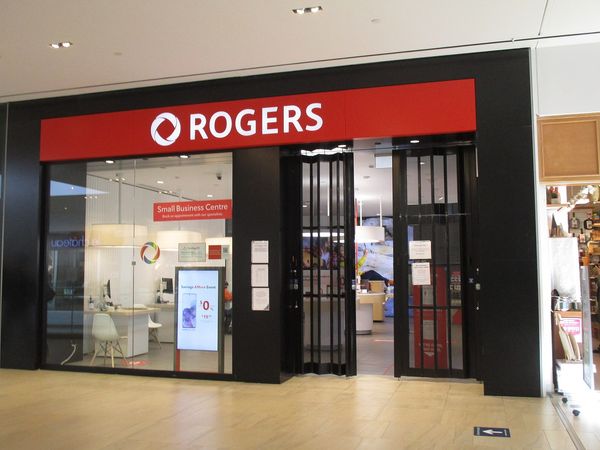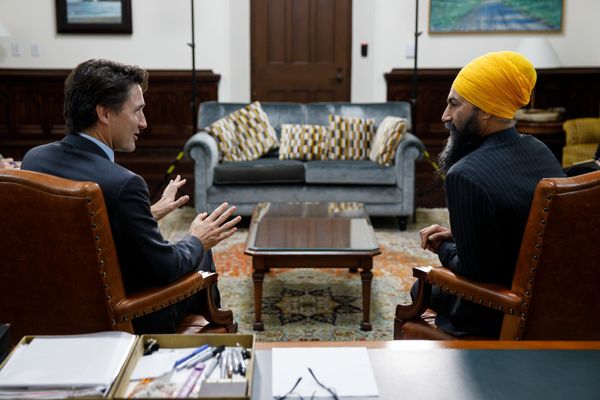Facing pressure to refuse bailouts for companies that use tax havens, the federal Liberal government recently announced a list of criteria that corporations will need to meet if they want to receive funding through a new government program.
The Large Employer Emergency Financing Facility (LEEFF) will provide financial aid to companies with annual revenues of more than $300 million. To qualify, corporations will be required to limit stock buybacks, dividends and executive pay — similar to the terms France, Denmark and Poland laid out earlier that put pressure on Canada to follow suit. Those countries also vowed that any corporation using tax havens will not receive government funding. The Canadian government has offered a watered-down version, promising any corporation convicted of tax evasion will not be eligible for funding.
While this condition sounds tough, it’s effectively meaningless. That’s because, while many “aggressively avoid” taxes, no large corporations in Canada have actually been criminally convicted of tax evasion, or been taken to court for it, as far as we know.
Canada Revenue Agency’s list of enforcement notifications includes mostly individuals and smaller and medium-sized enterprises. Instead of taking larger corporations to criminal court for tax evasion, the CRA takes them to Tax Court for “re-assessments.” And because multinationals can afford the best accountants and lawyers to work around weaknesses in Canadian and global tax rules, they too-often win against the CRA.
Canadian grocery giant Loblaw recently won a multi-million dollar case the CRA had brought against it over the use of a subsidiary “bank” it established in the tax haven of Barbados. The win makes the corporation — and its billionaire Weston family owners — millions richer in a period that saw company sales up by double digits.
Saskatchewan-based mining giant Cameco not only won the latest round in its billion-dollar dispute with CRA over the use of a subsidiary in Switzerland, but was also awarded more than $10 million in legal fees for challenging the CRA’s assessment.
Until we fix our broken corporate tax rules that allow multinationals to get away with using tax havens, public dollars will be used to fund corporate tax dodgers.
Even the bolder approach taken by France, Denmark and Poland to outright refuse aid for any corporations that use tax havens has limitations. The countries will use the European Union’s tax haven blacklist, which tax justice advocates have criticized for excluding problematic jurisdictions with low tax rates and high levels of financial secrecy, such as the Bahamas and British Virgin Islands.
While the steps Canada and other governments have announced are important, they don’t go far enough to prevent corporate tax dodging or profiteering during the pandemic. To hold corporations accountable, we need to see where the money is going. The government must disclose which companies are receiving funding, and those businesses should be required to show how their funds are being used to help workers.
Although the government said assessments “may be made” of a company’s finances and international structure, there’s no mandated public disclosure of this information for LEEFF or any other federal funding. Requiring corporations to disclose their finances, subsidiaries and taxes paid in every country is the best way for government, authorities, journalists, civil society organizations and the public to identify which Canadian companies are using tax havens. Without stronger transparency laws, the government’s warning to corporate tax-dodgers will be more soundbite than bite.
These standards should apply to all federal funding, not just LEEFF, as businesses can take advantage of the wage subsidy and other programs. The public, which is funding this support, has a right to know details about the government’s COVID-19 procurement and other contracts, such as the deal it recently struck with Amazon, a corporation with a reputation for tax dodging, workplace safety concerns and poor labour relations.
Fiscal aid should also be denied to shell companies that don’t reveal their ultimate beneficial owners. Anonymous companies are often used to evade taxes and launder money in Canada, contributing to an epidemic that has helped drive up housing prices in cities such as Vancouver and Toronto. A legitimate business has nothing to hide and public dollars shouldn’t go to criminals operating behind Canada’s weak corporate transparency laws.
While the government has rightly been focused on getting support and supplies to people who need them, a pandemic is not the time to lower Canada’s already inadequate transparency standards. As billions of dollars are being rolled out, stronger protections are needed for whistleblowers across both public and private sectors to warn against any misuse of funds or unsafe workplace practices.
None of the government’s measures to get tough on corporate tax dodgers will carry much weight without consequences for companies that fail to follow through. Federal funding should include anti-corruption and clawback clauses so that corporations found not to be abiding by the rules will be held accountable. Now is also the time to introduce stronger punishments for tax avoidance and evasion — not only for those companies that engage in it, but the lawyers and accountants who help them evade any consequences.
If public dollars aren’t spent wisely, we’ll have larger debts to repay, and the credibility of governments and public programs will be undermined now and into the future, when they’re most needed.






